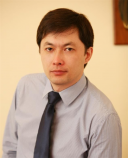Sergey Yun. Modernization of Higher Education in Uzbekistan: Opportunities for Russian-Uzbek Cooperation

Higher Education in Uzbekistan: Problems of Development
With President Shavkat Miromonovich Mirziyoyev taking office in 2016, deep reforms affecting all areas have been carried out in Uzbekistan. The content of the reforms is determined by a shift in the country's national development model. If we define the model in terms of resources, the transition from a conservative policy of relying on own resources to a policy of actively attracting external development resources as part of a multi-vector policy has been made. The priorities are the following: foreign investments and modern technologies, exports of goods and services, best international practices in the fields of public administration and regulation, development of financial, transport, social spheres, etc.
Higher education in Uzbekistan is also at the stage of deep reforms. The necessity of the reforms is determined by the problems inherited from the previous period which caused a gap between the goals of the country's social and economic development and the capabilities of the outdated university system. Among open source materials, only one comprehensive analytical work was found, the World Bank Report 2014 “Uzbekistan. Modernization of the Higher Education System”. Its conclusions and assessments were supplemented by materials from other sources.
Among other things, we can highlight the following problems of higher education in Uzbekistan that have accumulated by the mid-2010s...
Read the paper




